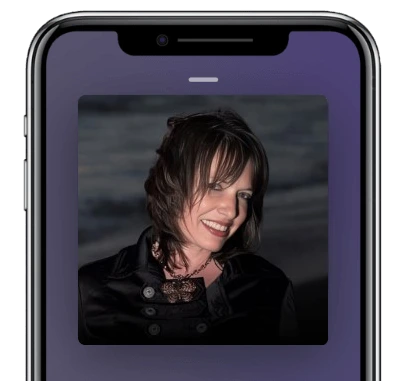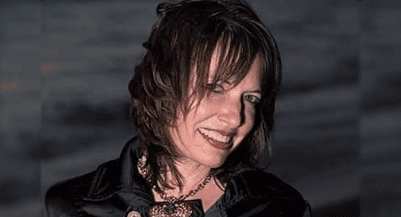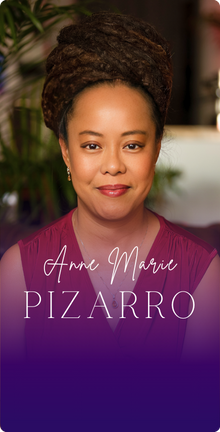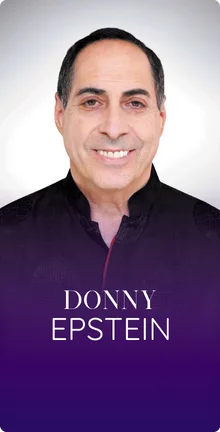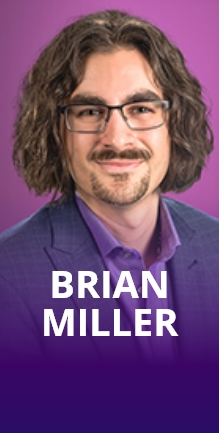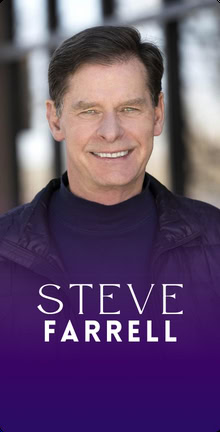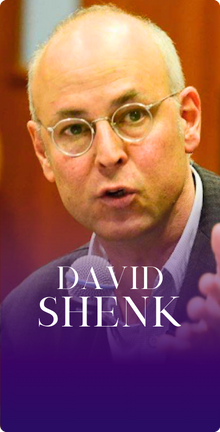In this Episode
- [00:09]Stephan introduces today’s guest, Mara Powers, who is on a lifelong quest to unravel the secrets of the mystery of Atlantis. She has created a visionary fantasy series that incorporates both the esoteric and secular depiction of Atlantis.
- [01:38]Mara shares how a dream piqued the beginnings of her journey in learning Atlantis.
- [4:16]Stephan asks about Mara’s learnings about past life regressions, aspects that she was drawn to, and starting down the journey with Edward Casey.
- [7:35]Mara remembers her past experiences with the Akashic records.
- [8:51]Stephan requests Mara to tell the listeners the history of Atlantis and its relevance to the happenings of our lives today.
- [11:02]Importance of understanding our ego and getting connected to other people.
- [15:25]Mara shares the story of the destruction of Atlantis.
- [20:11]A discussion of karmic events playing out over not lifetimes but millennia.
- [23:42]Mara expresses her thoughts about Plato’s writing about Atlantis.
- [26:49]Presentation of Utopian tales that pop up in history may be cautionary tales and lead to society’s destruction.
- [31:09]Mara expounded the three phases of the Atlantis civilization, green Sahara Theory and the occurrence of another star system.
- [38:39]Mara and Stephan discuss the experience of awakening and passing the turning point of destruction.
- [40:45]Stephan requests Mara to leave with the listeners some lessons, mistakes and actionable items from her study of Atlantis and the talks about the concept of being connected.
- [46:14]Ability of human ego to see the comparison and push against contrast.
- [48:19]Visit Mara Powers by typing to follow her work, read more about her books, and blogs receive emails and check her account, Shadows of Atlantis on Facebook, Goodreads, and Instagram.
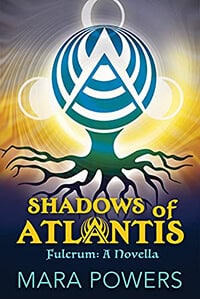
Mara, it’s so great to have you on the show.
Thank you for having me.
I was not really that familiar with Atlantis until recently. I’ve been reading up a fair amount about it. I did watch the TV series, Stargate Atlantis, that was, of course, fictional. It piqued my interest, let’s just put it that way. It started me down the path of learning more about Atlantis, about the Arcturians, the continent of Mu, and all this stuff.
It’s all seemingly connected and I wanted to just start by, if you could share how you got started on this journey of learning about Atlantis—I think your interest piqued with a dream if I’m correct. I read a blog post that you’d written about a dream that you had around age 14. Maybe we start there.
That wasn’t about Atlantis. The dream was like this weird zombie dream. It was weird. It was like, I was stuck in some dungeon, then the doors opened, and everybody just filed out. They were all zombies and I was like, what’s going on here? I remember everything being this Arctic blue color. We went into this stadium where people were channeling our fears and creating power out of our fears.
That actually led me to this whole idea of like, what makes people want to be evil? Because I didn’t understand it. I don’t understand evil. It doesn’t make any sense to me. I just started studying all this stuff about evil just to understand it. I came to this point from the dream that led me into the philosophical thread of my work. When you were reading about my background—I grew up Catholic and I was very interested in religion and all that.
When I started going to the library—it’s funny because I’m actually staying right now a couple of blocks from that library, talking about everything being connected. When I went to that library, that’s when I started studying all the different theologies and then Hinduism introduced me to reincarnation. I was like, oh, that’s a cool idea, our souls getting recycled. That’s when I found Edgar Cayce and then everything just went from there.
I just started studying all this stuff about evil to understand it.
I just learned about Edgar Cayce about five months ago. I was reading from a document written by the medium, Michelle Whitedove. For some reason, that name just popped off the page for me. I felt compelled to google him. I ended up on the edgarcayce.org website, the A.R.E. Foundation. On the homepage was a Karen Noe webinar that was featured that I was called to attend. I did and then I followed her instructions to ask for a prophetic dream.
I got it that very night and I was woken up from it so that I could remember it, just like I had asked. None of that would have happened. It was the most beautiful, otherworldly dream I’d ever had, I’ll never forget it. It happened because I felt compelled to google Edgar Cayce when I saw his name for the first time in my life just five months ago. That was pretty otherworldly.
You started down this journey with Edgar Cayce where you were learning about the stuff that he was channeling or you were learning about his past life regressions? What was it that you were especially drawn to?
Edgar Cayce was a channel. He was a medium. He did a lot of stuff that were past life regressions. He described in detail this civilization in Atlantis. That’s what I got into. He did a lot of other stuff too. I see him as the modern Nostradamus, but he went backward instead of forward.
You have an ego, emotions that you have to grasp and learn. So either you let those things control you, or you manage them. Share on XI guess he thinks he did some forward stuff, but he mostly did people’s past life regressions. He talked about how the United States is living out the karma of Atlantis right now. I’ve been writing this fiction about creating this world of Atlantis, but also I get to describe America, American life, by using this idea of this civilization.
It’s fascinating to me. The civilization in Atlantis was quite advanced. They were not Stone Age. They had the technology, some really advanced technology that was, I guess, gifted to them by extraterrestrials, by Arcturians, or something like that.
Yeah, well, according to Edgar Cayce. Do you know about the theosophists?
I sent my adult kids to Waldorf school when they were little. I knew about Rudolf Steiner. I didn’t understand what Theosophy was. I still don’t really understand it, but I only just understood the implications relating to past life work that might be an Atlantis connection and all that just this year. Then Tom Moore, I don’t know if you know him, but he’s done a lot of channeling and learning about Atlantis from Theo.
Theo. These people talk about tapping into the Akashic records, which is a fourth-dimensional library of all of the human information that we can tap into at any point. I wrote that into my story too.
That’s cool. Have you had any experience with the Akashic records?
I’m so wide open on the subject because I’ve studied it for so long that I know how to—it’s just all in there.
Sure. When I was younger, I was very into channeling, using the power of crystals, and tapping into them. Now it’s just all second nature to me because I’m so wide open on the subject. Because I’ve studied it for so long that I know how to—it’s just all in there. I’ve written it down. I don’t consider myself looking at the Akashic records, but maybe I’m just an open channel to it.
Yeah, I think you are. I’m personally just learning how to access my Akashic records through opening the records. I took an Akashic records training. I’m taking another one here. The Akashic records reader, Anne Marie Pizarro, was a guest on this podcast—an amazing, amazing episode.
Let’s circle back to Atlantis. I’d love for our listeners to understand this significance for modern-day life to this whole—I don’t want to call it mythology, but it’s just a mythos or a whole area of study around Atlantis that might seem like fanciful science fiction, but there’s relevance to what’s happening in our lives today. I’d love for you to bring that forward for our listeners to really grok.
The idea of the downfall of Atlantis is really what we’re dealing with now as far as karma. The very basics of it are that it was a society that got so technologically advanced that they kind of went mad. They drove themselves crazy with all this information that they had access to and all this power. They lost track of their connection to the planet. The more that society separated from nature, the more they put themselves in danger.
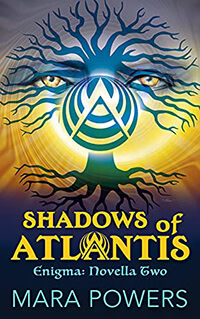
They thought of themselves as better than nature, which is kind of what we’re doing now. It really goes into the genre of cli-fi, which is climate fiction, and the idea of climate change. In my Atlantis, their technology—and this is all from Edgar Cayce too—was hardwired into the dimensions of the earth and the crystal technology. Because of that, their contract to have this technology was to maintain that connection and to nurture it. The more advanced they got, the more superior they felt.
Their ego got the better of them, I guess.
The ego, yeah. They’d separated from the One. A lot of what Edgar Cayce talked about was The Children of One, that they were the ones that were trying to make Atlantis go back to its original roots. Then there were the followers of Belial, which actually I do a twist in my book. I make Belial into an actual folkloric hero in it. The character of Belial is an actual God. It’s this whole concept because I did a lot of research on the difference between Catholicism and satanic worship.
I studied Anton LaVey. I didn’t become a satanist because I’m not into that. There’s a weird line that is between good and evil. They talk about how Satanism is more about the worship of the ego and the worship of your own self-expression on the planet. When you get born, you choose to have these human faculties.
You have your sight, your smell, and all that. But then you also have your ego, you have your emotions, and you have these faculties that are non-substantial, that you have to grasp, you have to learn. Instead, your ego can control you, your emotions can control you, and your thoughts can control you. All that stuff, to me, is part of the discipline of The Children of One and the Law of One. Either you let those things control you or you control them.
Belial in my story is actually a person that had some control over all of that. You know the whole history of Christianity is, you can take a doctrine like what The Children of One had, and you can turn it into a control mechanism. When you look at the witch-hunts, you look at the indulgences and all the stuff that the Catholic church did back in the day where it was just dark. The idea is this weird juxtaposition is like a riddle, that you can say, oh, this is evil, but maybe it’s not. You can say this is good, but maybe it’s not. It’s like this whole back and forth, and we’re dealing with that today too.
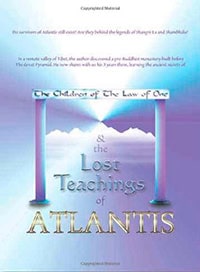
There’s actually good in the bad and there’s bad in the good, which is pretty mind-blowing.
It’s a mind-bender.
Yeah, it is a mind-bender for sure. It’s almost like with the Atlanteans, putting ego and free will at the top of the pyramid in importance, they lost some of the magic of synchronicities and just the beauty and the magic of life is. That soul connection, having soul contracts, having pre-ordained meetings, missions, relationships, and so forth that we agreed to before we incarnate. Putting free will at the top of the pyramid means that all those other things are not as important and you can lose your soul.
Yeah, or lose your connection to everybody else because there’s an innate responsibility that we have. Yes, we need to understand our ego, but there’s a responsibility we have to each other and to the planet. That’s where Atlanteans had a schism and that’s where we have a schism as well.
Didn’t the Atlanteans, at least some of them, participate in a disastrous experiment that ended up destroying, essentially a moon or some satellite that was crucially important at the time?
That’s one of the stories. There’s a lot of different stories about what caused the destruction of Atlantis. I actually put that into my mythology of it.
I’m curious, where does the Lemurian race fit into all this? I was asking about the moon. You said that was part of the mythology, something like that.
The more I’ve researched about Atlantis, the more I realized that there were a number of different ages. They had thousands of years of history and they had a longer lifespan. There’s a lot of correlation to the old biblical stories as well. Like Noah’s Ark, that’s a perfect example. When you look at these biblical stories, these people had thousands of years. They were like 1000 years old.
There’s a lot of different stories about what destroyed Atlantis.
I think of it as that they had longer lifespans back then for whatever reason. Maybe our atmosphere had more oxygen or I don’t know. That story about them destroying the satellite, the moon, or whatever like there were a couple of moons. One myth about Tiamat, and that comes from pre-Babylon, the Babylonians. What are the ones that had the Anunnaki?
I’m not remembering right now. There’s so much information about it. I’m sure there are probably people listening that are like, I know. That particular myth talked about how there was—
Oh, Sumerians?
Sumerians. There was some research going on that they destroyed one of the moons. We had two moons, apparently. There are myths about the asteroid belt that’s in between Mars and Jupiter, that that used to be a planet. That’s another aspect of that myth where the Atlanteans caused that—those crazy Atlanteans.
They could space travel then, right?
Yeah, but I don’t have that in my story. Here’s an interesting thing about Edgar Cayce. My dad and I got into a fight when I was a teenager, and we didn’t talk for a while, and then I started getting into Atlantis. I went to the bookstore one day and I came back with this Edgar Cayce book. My mom was like, your dad was really into Edgar Cayce when we first met, and he’s really into Atlantis.
There was some research going on that they destroyed one of the moons.
That got us back together again, my dad and I. Ever since then, it’s like, I call my dad and he’s got all these really cool ideas about Atlantis. He’s more of a sci-fi space guy and I’m more fantasy-oriented. That also brings me to Lemuria. There are a few different aspects, stories that people talk about Lemuria. Some people say that the Lemurians came first, and some people say that the Atlanteans came first.
Lemuria is the continent of Mu. Is that the same thing?
Yeah. Do you know about Col. Churchward?
No.
That’s my big Lemurian thing. He talks about Mu. He was around the same time as Edgar Cayce. He was a maverick archaeologist. He went around the world and he was mostly in the Pacific Islands. He was uncovering the civilization of Mu. Then there are other people that say that Mu is different from Lemuria, that Lemuria is in the Indian Ocean, that whole there’s a continent that is submerged in the Indian Ocean.
That’s the great thing about writing fiction is that I can just decide which one I want to say is part of my mythos. The cool thing about this whole subject is that there are so many concepts, and you can decide which one you resonate with and which one you don’t. I do get letters from people a lot that are like, no, this is how it was and you can’t really say.
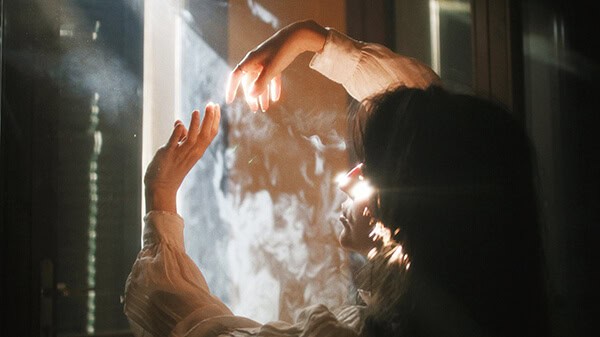
This is fiction I’m writing here. Back off.
I’m not arguing about what’s what.
That’s funny. I’m fascinated by all this, and I’m reading about Lemuria. I’m reading about like, was ancient Hawaii connected to the Lemurians? Well, technically no. It wasn’t part of the Lemurian continent. The Hawaiian Islands were separate. It was not just islands, it was a larger landmass that did get submerged over time. It was an ever part of Lemuria, apparently.
Yeah, all over the world, there are really cool ancient ruins. It leads one to believe that perhaps there was a global civilization. Maybe it’s all of the above. That’s the way I like to see it, that it was all connected. Maybe it wasn’t all Atlantis. In my story, I make it to where there’s a bunch of different empires all over the world that descended from the Lemurians. That was the mother society of them all.
In order for the Lemurians and the Atlanteans to get to the place where they were so advanced using crystal technology, having the ability to transport, to levitate, or whatever amazing stuff that they could do, they had to get some help. My understanding of that is the Arcturians from Arcturus were helping the civilization by giving them guidance, giving them technology, helping them get established. I guess they’re still involved in helping guide us to not self-destruct.
There are incredible ancient ruins all over the world. It leads one to believe that perhaps there was a global civilization.
I hope they are. I can’t say what is what, but I’ve just researched all this information so much that I just adore it.
It is fascinating, it is enlightening, uplifting, and also a warning too because of how things ended up—both civilizations were wiped off the planet.
Right, which leads you to believe that we’re not above that.
Yeah. Going back to karma for a minute, how do you see karmic events playing out over not just lifetimes, but over millennia? I read somewhere, for example, that the one scientist who was primarily responsible for the destruction of the moon satellite thing caused a lot of death and destruction, and he’s having to work through his karma over thousands of years and many, many lifetimes. Boy, that sounds not fun. What are your thoughts about karma and the law of cause and effect?
In my story, it’s Belial that caused all of that, and he’s having to work through his karma. He has to come back to help Atlantis in its final days. They’re not necessarily the final days, but he’s trying to help. The scientists in my story, they’re the Anunnaki. They came and they did all the genetic basis of creating humanity. We’ve got Enki and Enlil, basically.
We need to understand our egos and be responsible for connecting to other people and the planet. Share on XI’ve changed their names to protect the innocent, but they’re having to deal with the cycles of incarnation. All these people that are awakening and they’re discovering their powers, they talk about, oh, if I die right now, I’m going to have to do a bunch of soul retrieval. I’m going to have to come back and I’m going to have to go and gather all the fragments of my soul. That’s what I think of it.
I think of it that we can do great evil in the world and then when we die, we have to go back and we have to pick up those pieces. Because every time you do something to hurt other people, you give away a piece of yourself.
Another way I’ve heard of it is that what you do unto others that’s evil, dark, or whatever you want to call it, you get that back in return 10 times.
Right. That’s the basic karma.
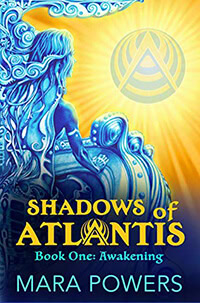
The good things, the blessings that you give out, 10 times that.
They come back 10 times, yeah. It should be a basic law that everybody follows.
It seems like that’s a universal law that everyone has to experience.
It’s the golden rule. It’s like what Jesus Christ talked about. Do unto others, you know.
The fact that some people seem to have a pretty cozy, comfortable life in this lifetime doesn’t mean that they just got lucky. They earned that through previous lifetimes in being a good soul and doing good things. What comes around goes around, and that is a universal law. If someone is evil in this lifetime, they’re going to have to, as you say, pick up the pieces, clean up their mess in future lifetimes. Do you think that we have Atlanteans who are reincarnated now in this time trying to clean up their messes and do good this time around?
Yeah, that’s what Edgar Cayce said. All his regressions were about these people that caused a lot of hurt and suffering in Atlantis. Everything is manifesting now for them, but also he talked about it as being a cultural manifestation of this karma. We’re dealing with the exact same things.
What are your thoughts about what Plato wrote about Atlantis? He didn’t write much, but he did reference Atlantis, and Plato wasn’t one for making up nonsense. That gives a historical basis for believing in Atlantis beyond just if you believe in mediums, channeling, stuff from the Akashic records, and so forth. What should we know about Plato and Atlantis?
Plato was the first person that we know of in Western literature that talked about Atlantis.
Plato was the first person that we know of in Western literature that talked about Atlantis. This actually is a really cool rabbit hole because his whole thing was this discussion between Socrates and Solon who apparently went to Egypt. Solon got his history of Atlantis from the priests of Egypt or the Alexandria Library and whatnot.
What’s interesting about Plato’s version is that I try and correlate it with Edgar Cayce. They described the same city. It’s like a circular target pattern that has the island in the center, then the canal, then another ring of land, a ring of water, a ring of land, and then a canal. That’s how I describe Atlantis, or at least the city of it as the ruling city.
Plato is the basis of all the secular research about Atlantis. A lot of people that try and find Atlantis use Plato’s description as a roadmap. He described that city. He described the red stone, and the black stone, and the white stone, and everything was made of stone. Then he also talked about that it was an island about the size of Libya and it was past the pillars of Hercules, which is the Strait of Gibraltar, that it was destroyed in a few days by flooding.
If you read Timaeus and Critias, which is the story that he describes Atlantis, it’s very philosophical. People who research it now think that it was the first science fiction that was ever created—the secular people. It also launched a new genre throughout history that was Utopian novels. John Locke who did Utopia, then there’s John D, and all these people all through history that wrote Utopian novels, they were all based on Atlantis. Plato’s work created Atlantis the way that we know it today.
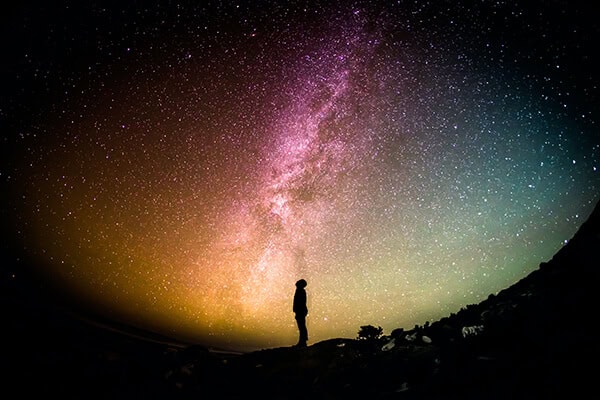
These Utopian views or historical novels and so forth over the millennia were cautionary tales, how Utopia can actually lead to the destruction of all of society?
Yeah.
What did people take out of that? Did they get the right message? Did they receive that this is a cautionary tale and they shouldn’t go down the same path? It doesn’t seem like much action was taken to avoid this.
Every time Utopian tales pop up in history, it’s whenever humans are going through a really rough time, so in the Middle Ages, all throughout history. It always has the author’s point of view of all the things that are wrong with society. The idea is that Plato created a society to illustrate what can go wrong. There’s that, and then because there are so many megalithic ruins all over the world, people believe that Atlantis is real. I like to believe it’s real because I like to believe in stuff like that because it’s fun.
The channeling that I’ve read about it from Tom Moore is that there will be indisputable evidence in the future. There’ll be archaeological evidence.
Every time Utopian tales pop up in history, it’s whenever humans are going through a rough time.
Edgar Cayce said that there would be evidence that popped up around the Bermuda Triangle or whatever, and then the Bimini Road was discovered. Do you know about that?
No. I don’t know about that.
Off the coast of Bimini, there are these weird ruins that are considered a road. It could have been a big giant wall or whatever. Whether that’s indisputable or not, it’s hard to say. Maybe the pyramids are indisputable, but people say that the pyramids were built by slaves as tombs for these pharaohs. I’m not really sure that that’s the case. Do you want to hear my theory about Atlantis?
Yes.
The Mid-Atlantic Ridge is a mountain range that’s under the ocean. It’s all basalt. Basalt is very porous. That area is also very volcanic. Edgar Cayce actually said that the fall of Atlantis was around the end of the Ice Age.
During the Ice Age, a third of the ocean was caught up in ice. It was frozen. Something happened that made the glaciers all melt and that’s what caused the flooding. It buried the Mid-Atlantic Ridge underwater, most of it, except for the Azores and the Canary Islands. A lot of people say Atlantis was outside of Spain because that’s about where Plato said it was. The flooding I think is because of the end of the Ice Age.
The great thing about writing fiction is that there are so many concepts to choose from and decide which ones resonate with us and which ones do not. Share on XFrom what I read, the seas rose by something like 40 feet, something huge like that.
Yeah.
Everyone who lived anywhere near the coasts died. It just came so quickly that they didn’t have time to run for the hills.
Exactly. Whatever it was, it could have been the crazy scientists. My dad’s theory is that they were drilling in the ocean for methane or whatever, they hit a pocket of methane, and then it exploded. He’s more sciencey. I’m a little more esoteric, but I do like to keep myself more grounded in my theories.
Right. Weren’t there three civilizations of Atlantis or three phases where they each had—I wouldn’t call it extinction event, but a big upheaval. They had to recover from that and then come back from it?
Yeah, the three ages of Atlantis. I do talk about that in my book too. I’m writing about the last age. They always talk about the Golden Age. That was the second age. At the end of that age, there was an extinction event that broke up the continent into islands. Now I’m dealing with island nations in my story.
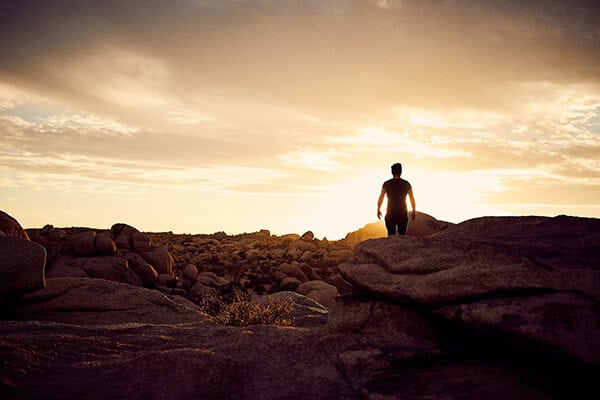
Got it. When did Noah and the whole ark situation happen? Was that at the end of the Second Age or the Third Age?
I would say the third because after that was when this age got set up. Do you know about the African, the Eye of the Sahara? Have you heard about that?
No. I haven’t, but I did want to bring up the Dogon tribe and how they knew that there was Sirius B and not just Sirius A. Let’s talk first about the Sahara thing.
Yeah, that’s another really cool theory. Actually, some of the coolest fiction work on Atlantis is set in the Sahara. The idea is that during the Ice Age, that desert was fertile. It was the Green Sahara theory. The Eye of the Sahara is also called the Richat Structure. You can see it from satellites. It’s like a rock formation that’s all blue rock and yellow. It’s shaped exactly the same way that Plato described the Atlantis city. The idea was that somehow it’s fossilized.
The concentric rings and all that was…
Yes.
Okay, interesting.
Some of the most remarkable fiction on Atlantis is set in the Sahara.
It’s a pretty cool theory. I haven’t yet put that into my stuff, but it brings us back to Stargate Atlantis. What’s funny about that is—I like to put funny things together—Jason Momoa was in that and then he also plays Aquaman. He’s the king of Atlantis in Aquaman. Some of the coolest fictional tales of Atlantis include the Sahara in it. Maybe there’s some racial memory. Aquaman, would they go to the Sahara? Him and Mera.
I remember that, yeah.
That says to me that they actually researched Atlantis because they’re bringing that. There are some odes to Jules Verne. Jules Verne talked about Atlantis. H.G. Wells talked about Atlantis. When Christopher Columbus went to search around the world, he was looking for Atlantis.
Interesting. I thought he was looking for another route to India.
People believed in it. Back in those days, they believed in it. I’ve done a lot of research into the ideas about Atlantis through the ages. I have some blog posts about that on my website.
Let’s talk about the Dogon tribe for a minute. I know that’s unrelated to Atlantis. Did you read up on this at all? I read many years ago, some research written by a guy named Temple. I think his name was Robert Temple. He wrote about how the Dogon tribe knew that there was another star.
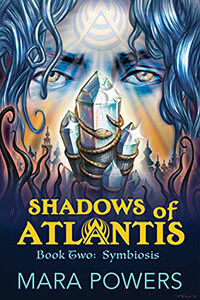
There was a star system that included a second star that orbited the bigger star, Sirius A. Sirius B they knew existed, and that it took 50 years to orbit. How could they possibly know that it was a 50-year orbit? There wasn’t the technology yet to determine that and yet they knew it. That is pretty fascinating.
Let’s talk about the Dogon tribe for a minute. They somehow knew that there was a 50-year orbit of Sirius B around Sirius A back in those days. They couldn’t have known it because even the scientists hadn’t discovered that yet.
Right. That goes along into the more extraterrestrial stuff. I used to be really into all that, the extraterrestrial ideas. It’s just so much, there’s just so much around Atlantis. But one of the cool things is that there’s something to be said for the passing on of knowledge from ancient tribes. You know that they got it from their ancestors. The legends are so cool and interesting. That also goes into Atlantis because I read this cool book by Charles Berlitz. Do you know about him?
No.
He wrote a book. He got famous for writing about The Bermuda Triangle, and he wrote a book about Atlantis. He goes around and talks about all the different folk-like words of mouth stories of these various cultures that talk about things that are all about a civilization that got destroyed, like the Mayans believed that their ancestors came from the Atlantic Ocean, from a continent that was destroyed. They all came over on boats, or was that the Aztecs? I can’t remember.
That’s one of the studies of Atlantis too is talking about the tribal word of mouth, the ancient folk tales. That’s really cool, that story about the Dogons.
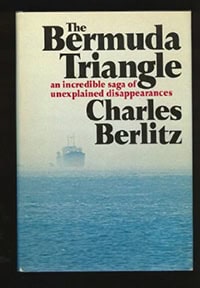
Yeah, I learned about that many, many years ago. I was fascinated with it.
I was really into all the star systems and all that, but that was in my 20s. I’m almost 50 now.
The Pleiades and there is another star system that’s relevant.
Yeah, the Arcturians are big, the Pleiades, and Orion. Is it Orion? There was supposed to have been a big war in the Orion system. Those are some fun tales.
Yup, and the Hathors.
The Hathors.
There are so many rabbit holes.
Yeah.
It’s been fascinating.
I’ve got this whole world that I’ve created. If I keep reading about it—because I’ve read about it for 30 years—the more information I uncover and I’m like, oh, damn, I could have written that into the story. For a long time, I would rewrite my story. Every time I would read something new, I’d be like, oh my God, I’m going to put that in. I’ve come to a standstill with my research. Now I just focus on human psychology because I’m writing about the psychosis of civilization. That’s a whole nother ball game right there.
Yeah, but things are looking up because apparently, we’ve made it past 2012 without destroying ourselves as a race. And because we made it past that turning point or that—I don’t know what the right word is, but we made it to that time. Now we get to experience awakening and not have to experience Armageddon.
Right. Another version of that is that in 2012—I just wrote a blog post about this—our timeline fractured into a bunch of different timelines. Now is when all of the darkest parts of humanity are bubbling to the surface. Some people are going down one timeline and some people are going down another. It’s like a fracturing. Hopefully, we can bring it all back together again, but we may go down different paths.
I’ve got this whole world that I’ve created. If I keep reading about it, the more information I uncover.
Does this relate to the concept of the multiverse and parallel universes?
I think so, yeah. In 2012, a bunch of doorways to different parts of the multiverse opened up. That’s the esoteric concept that I was studying back then. I was really into the awakening. I was convinced that we were all going to just suddenly awaken, but there’s a lot more work that needs to go into it, I think. I think it’s important for us to realize that the darkest night is right before dawn.
That’s some sage advice right there.
We’re going to struggle a bit before we come to the awakening is what I think.
To wrap up this interview and leave our listeners with a takeaway that they can implement, something actionable, what would you say is the biggest lesson, mistake, or missed opportunity perhaps that our listeners can get from all this interesting research, study, and channeling about Atlantis and everything that’s been written about it, studied, and channeled so far?
The biggest takeaway is going to be that we are all connected to each other. We are the Law of One, we’re connected to each other, we’re connected to the planet, and we’re connected to every single form of life on this planet. If we do not bring it all together, then we’ll suffer the same fate. Basically, we’ll destroy our own habitat. The earth will survive, but it might not be hospitable to us.
Some great evidence of this interconnectedness that I want to share is that if you would imagine this was in January of 2013. Three months earlier, I had a spiritual awakening. I was agnostic my whole life up until that point. I went to Catholic school, my whole childhood for the most part, other than two years. I was also raised by a Jehovah’s Witness. That’s pretty discombobulating. I was a foster child for some years too. Discombobulating is a good word for it.
We must realize that the darkest night is proper before dawn.
After that awakening in India where I was touched on the head by a monk and given a Diksha—it was like an LSD trip where I saw everything in technicolor, and I felt this deep connection to the Creator, to all of the fabric of creation, and everything. It was incredible. It was a life-changing event, just a destiny changing.
Three months later, I’m at an event run by Donny Epstein, who was a guest on this podcast. Definitely a great interview worth listening to. I’m at his event and he does this energy thing on us. They’re called entrainment. I was so blissed out. I was in another dimension. I was definitely not just in 3D reality at that point.
I had this intuitive hit that I could give a remote Diksha. That blessing that I had received in India, I could do that myself without touching the person. I just thought of all these people, maybe 30, 40, 50 people to do that to while I was blissed out laying on the floor. One of these people was somebody who I hadn’t thought of for 15 years, didn’t have contact with him for 15 years. It was a guy who used to work for me. He was talking smack about me behind my back.
I was very immature at that point in my life, I took it very personally, I was reactive about it, and so I fired him. I did it in front of everybody. It was not cool, what I did, but he filed a lawsuit against me for wrongful dismissal. It was a work at-will state. I was totally within my rights. He wasn’t going to win, but I just settled the case because it was cheaper and was less work for me to just settle rather than see it through to the end and win.
Every time you do something to hurt other people, you give away a piece of yourself. Share on XThen he disappeared from my life and I never heard his name again for 15 years. I thought of him when I was blissed out laying on the floor after this oneness blessing thing that I did to these people. He was one of those people who came to my mind. Guess who calls me on my cell phone out of the blue four days later to apologize?
That’s cool. That’s amazing.
We are all connected. We are all one.
That’s the Law of One right there. One of my favorite concepts that I’ve been researching all these years is the Law of One. It’s like everything is connected, all religions, all of us. We’re part of a neural network and we’re all empathically connected. In my stories, Atlantis is all connected and that connection is corrupted by everybody pulling away from it in favor of their own ego.
Ego is good because it gives us that individualized experience of life, which is what spirit is—spirit is all connected. In order to be embodied, we’re here to have that experience of individuality. We can’t lose track of how connected we are.
Ego is a gift because it gives us the ability to see the contrast and push against that contrast. Evil exists so that we can appreciate love, oneness, and everything. All of it is from God, from the Creator. All of it has the hand of God in it, even the darkest of the dark, even the supposedly evil people who are not redeemable and not worthy to incarnate again according to us, yet, God created that person, that entity, or whatever. It serves a purpose. It’s all for our highest best.
Now is when all of the darkest parts of humanity are bubbling to the surface of different timelines. It's like a fracture that needs to be joined back together again. Share on XYeah, they’re having their individualized experience. They may not be making the right choices, but they’re still here having their experience. They’re probably screwing up other people’s lives, and then that means they have to go pick up the pieces eventually. They’re not going to escape from that.
The balancing has to happen, that karmic debt has to be paid.
Right. It’s all simple, but it’s complicated that it’s simple.
Yeah, it’s simple, but it’s not easy because staying nonreactive when somebody triggers you and trying to work against our ego is not easily done.
Yeah.
This was a really fun and fascinating discussion. Thank you, Mara, for joining us today. If our listeners or viewers want to follow your work, read your work, follow you on social media, and all that sort of stuff, where can we send them to? What are your websites and all that?
Everything is Shadows of Atlantis. My website is shadowsofatlantis.com, that has all the books. It’s got a lot of cool stuff.
Including an amazing glossary. I loved your glossary. I spent hours poring over that glossary.
My Glossary of Atlantean terms?
Yeah.
That all is just stuff that’s in the book because I have all these terms in the book and people that aren’t Atlantean enthusiasts that read it. I need to have those in there. There’s that and there’s my blog. If you sign up for my emails, I do giveaways every once in a while. I don’t send out letters. I send out letters once a season or whenever I’m going to release something.
I’ve been doing a lot of writing lately. I’m doing a prequel and then I’m going to release a series on Amazon Vela, it’s just a chapter at a time. My first book has an audiobook. I still haven’t decided yet whether I’m going to do audio for the rest of them. I spent a lot of time in LA and I tried to get my stuff out on the TV series. At some point that’ll happen.
That would be amazing.
Yeah, we’ll see. Things are exciting.
Very cool.
Yeah, shadowsofatlantis.com and then Shadows of Atlantis on Facebook, Goodreads, and Instagram.
Yeah, awesome. Thank you, Mara. Thank you, listeners, for being open to this kind of out-there discussion. This is definitely one of the more out-there episodes, but I think it was one of the more interesting ones because of all these different rabbit holes we went down. Thank you, Mara. Thank you, listeners.
Thanks for having me.
We’ll catch you in the next episode. Have a great week. This is Stephan Spencer signing off.

